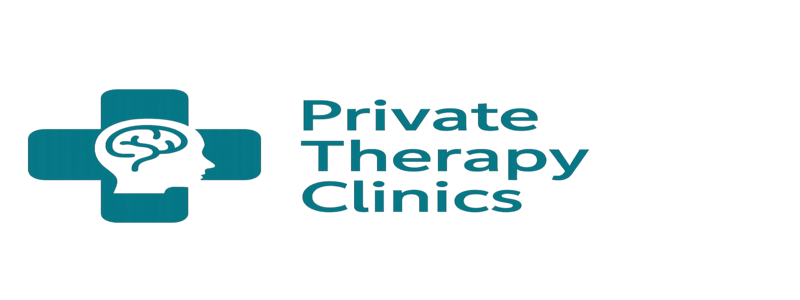
Credit: Call Her Daddy YT
Dr. Orna Guralnik has had a remarkably consistent impact on the way that love, grief, and conflict are portrayed on screen, something that few therapists are able to accomplish. She has introduced millions to a method of relational inquiry that feels incredibly transparent and incredibly vulnerable through the SHOWTIME documentary series Couples Therapy. She has become a symbol of how psychological depth can be televised without turning into shallow entertainment because of her quiet intensity, which is frequently characterized by prolonged silences and probing questions.
Working in New York City, where people from different backgrounds, cultures, and belief systems frequently come into contact, has given Dr. Guralnik a unique perspective on how personal feelings and broader ideological frameworks interact. Her sessions frequently highlight the strains imposed by history, identity, and unresolved intergenerational wounds in addition to romantic breakdowns.
Dr. Orna Guralnik
| Category | Details |
|---|---|
| Full Name | Dr. Orna Guralnik, PsyD |
| Profession | Clinical Psychologist, Psychoanalyst, Professor, Public Speaker |
| Education | PsyD – Ferkauf Graduate School; PostDoc – NYU Psychoanalysis Program |
| Practice Location | Private Practice – New York City |
| Core Expertise | Couples Therapy, Trauma Studies, Dissociation, Psychoanalysis |
| Academic Roles | Faculty – NYU PostDoc & National Institute for the Psychotherapies |
| Media Role | Lead Therapist on SHOWTIME’s Couples Therapy |
| Past Consulting Work | Lucid Consulting & WorkLab (Organizational Psychology) |
| Online Profile | www.ornaguralnik.com |
| Instagram Handle | @ornaguralnik (124K+ followers) |
Guralnik, who has trained in psychoanalysis for decades, frequently incorporates ideas from thinkers like Terry Eagleton and Judith Butler into her reflections, using them as lenses to make sense of complexity rather than as diversion. She is particularly well-known for her research on dissociation, a survival mechanism that can result from childhood abuse and develop into a persistent emotional defense, as she demonstrated with patient Alexes on the show. Her method is incredibly successful in promoting emotional breakthroughs that viewers—and patients—often find transformative, rather than being clinical for the sake of detachment.
Her academic background alone demonstrates her dedication. In addition to treating patients, she teaches courses on trauma, dissociation, and the effects of sociopolitical factors on the psyche. She holds a doctorate in clinical psychology and a postdoctoral specialization in psychoanalysis from NYU. She has established a reputation in academia and medicine over the last 20 years, co-founding research institutes and making significant contributions to publications such as Studies in Gender & Sexuality and Psychoanalytic Dialogues.
Her insistence that therapy is not distinct from the social fabric is what distinguishes her approach as especially novel. She has addressed urgent cultural conflicts in recent years through her sessions and public appearances. One of the most significant instances was when she continued to communicate with Christine, a Palestinian contestant on the show, after what happened on October 7. Both leaned in rather than using their national identities as a barrier. They managed what might have easily descended into yet another divisive breakdown by using the concepts of couples therapy—honest listening, accountability, and patience.
Such intellectual courage is rarely modeled in therapeutic settings, and it is rarely seen on reality television. However, Guralnik saw those discussions as a component of a larger duty. Her practice is extremely versatile because she helped process not only romantic tension but also global trauma through strategic dialogue.
Her personal history also influences her therapeutic approach. She talked candidly about her family’s Zionist history, mentioning those who died in the Holocaust and others who fled to Israel in the 1930s. Her nuanced position—that Israel has a right to exist but that the occupation must end—was influenced by her ancestry. Her ability to bring political responsibility into profoundly human spaces is demonstrated by these remarks, which were made in the closeness of therapeutic exchange rather than from a podium.
Her tone, however, never becomes dejected. She confronts tales of abuse, betrayal, dissociation, and even existential guilt, but she never loses sight of the potential for connection. This optimistic resilience is rooted in decades of observing change, so it is not naïve. Guralnik acknowledged feeling unmoored during her own crisis after the Hamas attacks and Israel’s retaliation in Gaza. She talked about losing her sense of morality, her faith in psychoanalysis, and even her faith in dialogue. She started to rebuild that foundation, though, with time, reading, and speaking—evidence that even therapists are constantly moving.
Her media presence significantly increases the work’s social relevance. She is reaching audiences well beyond the clinic with her more than 120,000 Instagram followers and numerous public speaking engagements, including appearances on Jay Shetty’s podcast and in interviews with The New Yorker. Her appearances are meant to promote more complex discussions about love, loss, identity, and responsibility rather than to promote herself.
She has emphasized the value of cultural literacy in therapy while mentoring younger clinicians throughout her career. By doing this, she is leaving a legacy that is both emotionally and academically based. In addition to treating patients, she also teaches aspiring healers, participates in social discussions, and promotes a psychological fluency that can heal even the most strained relationships.
She has consistently changed from her previous consulting work to her current position in the media, demonstrating that psychological insight is not just found in therapy settings. She has aided audiences in realizing that connection is a lifelong process, that healing isn’t linear, and that progress is frequently paradoxical.
The influence of Dr. Orna Guralnik comes from her inability to distinguish between the political and the personal, the individual and the group, or the past and the present. She challenges couples—and therefore all of us—to sit uncomfortably, to consider our belief systems, and to allow for inconsistencies. Her approach has been so popular because of her ability to guide without dictating, to witness without recoiling, and to gently provoke without alienating.

